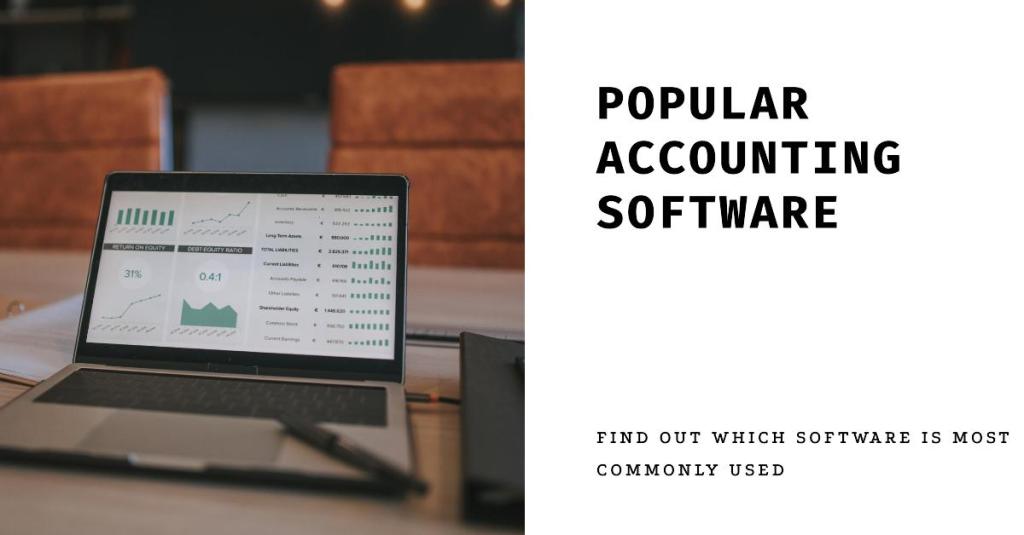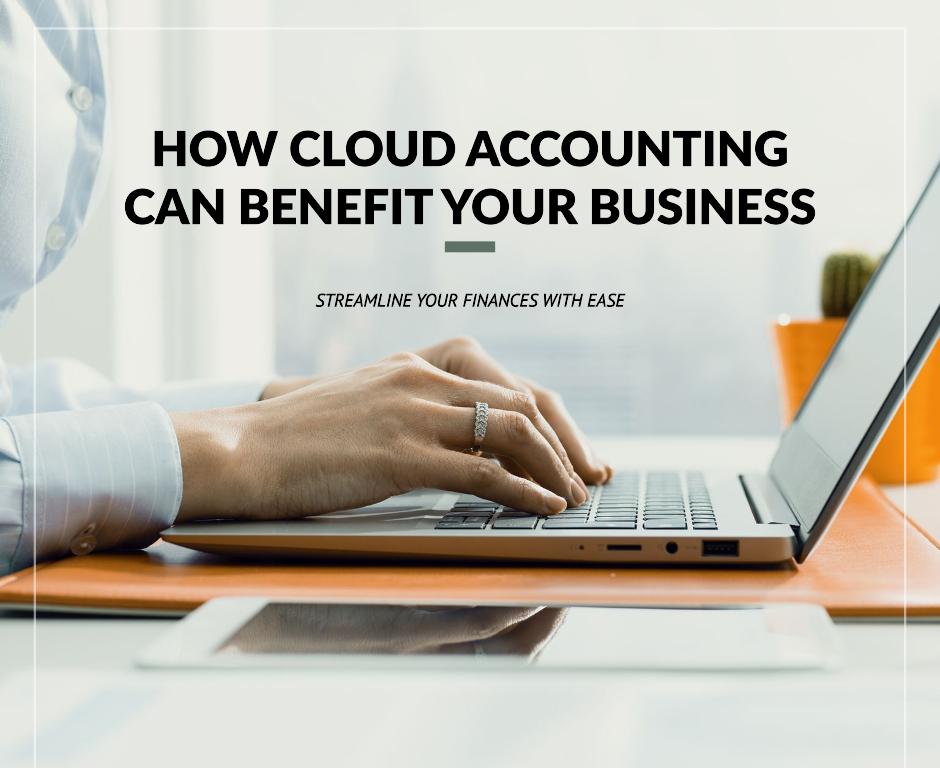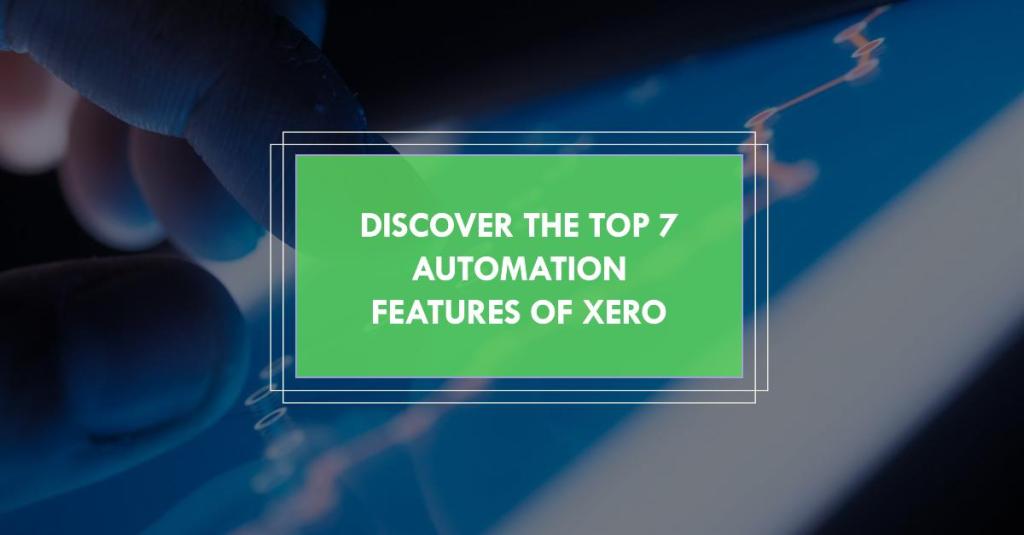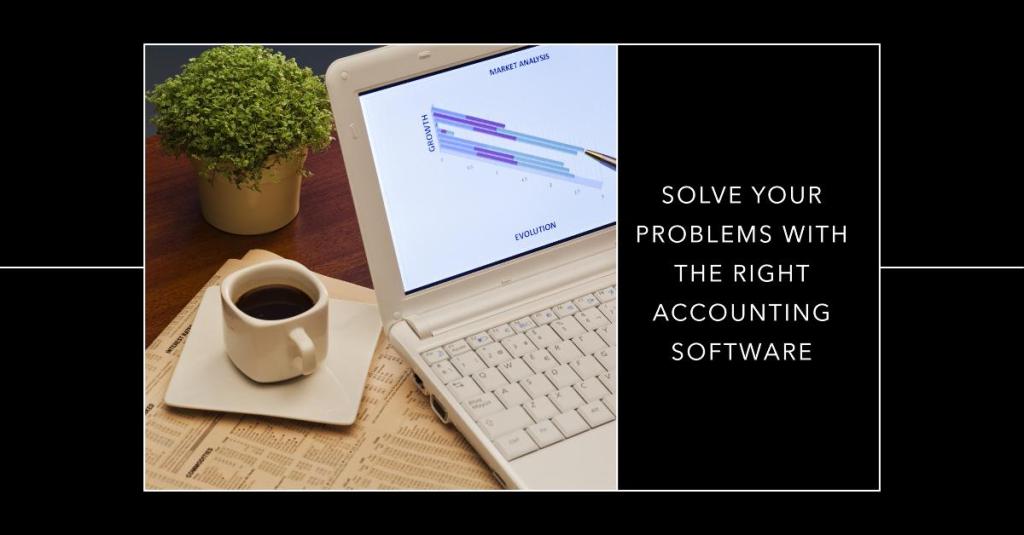In the digital age, efficient financial management is crucial for the success of any business, regardless of its size or industry. Accounting software plays a vital role in streamlining financial operations, offering businesses the tools they need to manage their finances effectively. From tracking expenses to generating financial reports, accounting software simplifies complex tasks and provides valuable insights into a company’s financial health.
Popular Accounting Software Options
Several accounting software solutions dominate the market, each offering unique features and functionalities tailored to different business needs. Some of the most widely used accounting software options include:
- QuickBooks: Known for its user-friendly interface and robust features, QuickBooks is a favorite among small and medium-sized businesses. It offers various versions, including QuickBooks Online and QuickBooks Desktop, catering to different business requirements.
- Xero: Xero is a cloud-based accounting software popular for its accessibility and collaboration features. It provides invoicing, bank reconciliation, and expense tracking tools, making it ideal for small businesses and startups.
- FreshBooks: Designed with freelancers and service-based businesses in mind, FreshBooks offers simple invoicing and expense-tracking solutions. It also integrates with popular payment gateways, streamlining the billing process for businesses.
- Sage: Sage offers comprehensive accounting solutions for businesses of all sizes, with features such as inventory management, payroll processing, and advanced reporting capabilities. It caters to various industries, including manufacturing, distribution, and construction.
- Zoho Books: Zoho Books is part of the Zoho suite of business applications, offering a range of accounting features for small businesses. It includes modules for invoicing, expense tracking, and project management, all accessible from a single platform.
- Wave: Wave provides free accounting software for small businesses, making it an attractive option for startups and solo entrepreneurs. It offers basic accounting features, including invoicing, expense tracking, and financial reporting.
- Intuit QuickBooks Online: As a cloud-based solution, Intuit QuickBooks Online allows users to access their financial data from anywhere, anytime. It offers scalable plans suitable for businesses of all sizes, with features like bank reconciliation and tax preparation.
- MYOB: MYOB (Mind Your Own Business) is a popular accounting software choice in Australia and New Zealand, offering a range of solutions for small and medium-sized enterprises. It includes features for payroll, inventory management, and job costing.
- NetSuite: NetSuite is a cloud-based ERP (Enterprise Resource Planning) system that includes accounting functionalities along with CRM (Customer Relationship Management), inventory management, and e-commerce capabilities. It caters to larger enterprises with complex business needs.
Features to Consider When Choosing Accounting Software
When selecting the best accounting software for your business, it’s essential to consider various factors to ensure you choose the right solution. Some key features to look for include:
- Cloud-based vs. desktop software: Determine whether you prefer a cloud-based solution for remote access or a desktop application for offline use.
- Scalability: Choose software that can grow with your business and accommodate increasing transaction volumes and users.
- User interface and ease of use: Opt for software with an intuitive interface and user-friendly navigation to minimize training time and maximize productivity.
- Integration capabilities: Ensure that the accounting software integrates seamlessly with other business applications you use, such as CRM software, payment gateways, and e-commerce platforms.
- Customer support: Consider the level of customer support offered by the accounting software provider, including availability, responsiveness, and support channels.
Quick Overview of Each Software
Here’s a brief overview of the features and functionalities offered by each accounting software mentioned above:
- QuickBooks: Comprehensive accounting solutions with customizable invoicing, expense tracking, and reporting features.
- Xero: Cloud-based accounting software with tools for invoicing, bank reconciliation, expense tracking and project management.
- FreshBooks: Simplified invoicing and expense-tracking solutions for freelancers and small businesses.
- Sage: Robust accounting software with advanced features for inventory management, payroll processing, and financial reporting.
- Zoho Books: Integrated accounting platform with modules for invoicing, expense tracking, and project management.
- Wave: Free accounting software for small businesses, offering basic invoicing and expense tracking features.
- Intuit QuickBooks Online: A cloud-based accounting solution with scalable plans and features like bank reconciliation and tax preparation.
- MYOB: Accounting software with payroll, inventory management, and job costing functionalities, popular in Australia and New Zealand.
- NetSuite: A cloud-based ERP system with accounting, CRM, and e-commerce capabilities, suitable for larger enterprises.
Comparison of Pricing Plans
When comparing pricing plans for accounting software, consider factors such as subscription-based vs. one-time payment options and the cost implications for your business:
- Subscription-based plans typically require a monthly or annual fee, providing access to software updates, customer support, and cloud storage.
- One-time payment options may involve a higher upfront cost but no ongoing subscription fees, making them suitable for businesses with limited budgets or specific software requirements.
User Reviews and Ratings
Before making a decision, it’s essential to research user reviews and ratings for each accounting software option. Consider the pros and cons highlighted by other users and the overall satisfaction ratings on popular review platforms such as Capterra, G2, and TrustRadius.
Industry-specific Accounting Software
In addition to general accounting software, some industries may require specialized solutions tailored to their unique needs. For example:
- Construction accounting software may include features for job costing, project management, and subcontractor management.
- Retail accounting software may offer inventory management, point-of-sale (POS) integration, and multi-location reporting capabilities.
- Healthcare accounting software may include HIPAA-compliant features for medical billing, insurance claims processing, and patient accounting.
Trends in Accounting Software
The accounting software landscape is constantly evolving, with new trends and technologies shaping the industry’s future:
- Automation and AI integration are becoming increasingly prevalent, streamlining repetitive tasks such as data entry, invoice processing, and financial analysis.
- Mobile accessibility allows users to manage their finances on the go, with mobile apps offering features like expense tracking, invoice creation, and receipt scanning.
- Blockchain technology is gaining traction in accounting, offering secure and transparent transaction recording, audit trails, and fraud prevention mechanisms.
The Future of Accounting Software
Looking ahead, the future of accounting software holds exciting possibilities, driven by advancements in technology and changing business needs:
- Predictive analytics and machine learning algorithms will enable more accurate financial forecasting, risk management, and decision-making.
- Integration with emerging technologies such as virtual reality (VR) and augmented reality (AR) may transform the way users interact with financial data, providing immersive and intuitive experiences.
- Enhanced cybersecurity measures will be critical in safeguarding sensitive financial information from cyber threats and data breaches.
Conclusion
In conclusion, accounting software plays a pivotal role in modern business operations, offering a range of features and functionalities to streamline financial management processes. By considering factors such as software features, pricing plans, user reviews, and industry-specific requirements, businesses can choose the right accounting software solution to meet their needs and drive success in an increasingly competitive landscape.
FAQs (Frequently Asked Questions)
- What is the best accounting software for small businesses?
The best accounting software for small businesses depends on factors such as budget, industry, and specific requirements. Popular options include QuickBooks, Xero, and FreshBooks.
- Is cloud-based accounting software secure?
Yes, most cloud-based accounting software providers implement robust security measures to protect user data, including encryption, multi-factor authentication, and regular security updates.
- Can accounting software integrate with other business applications?
Yes, many accounting software solutions offer integration capabilities, allowing users to connect with CRM software, payment gateways, e-commerce platforms, and other business applications.
- How often should I update my accounting software?
It’s essential to stay up-to-date with the latest software updates and patches to ensure optimal performance and security. Check for updates regularly and install them as soon as they become available.
- What should I consider when migrating to a new accounting software system?
When migrating to a new accounting software system, consider factors such as data migration requirements, training for staff members, integration with existing systems, and potential downtime during the transition process.
Learn more:
Discover the Top 7 Features Xero Has to Offer
Explore 6 Problems to Solve with the Right Accounting Software




Leave a comment